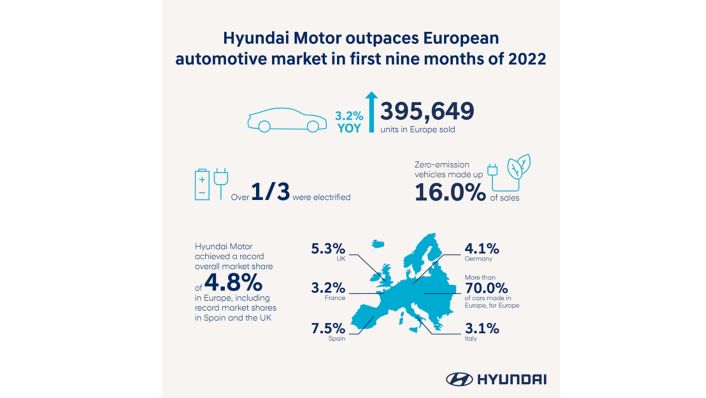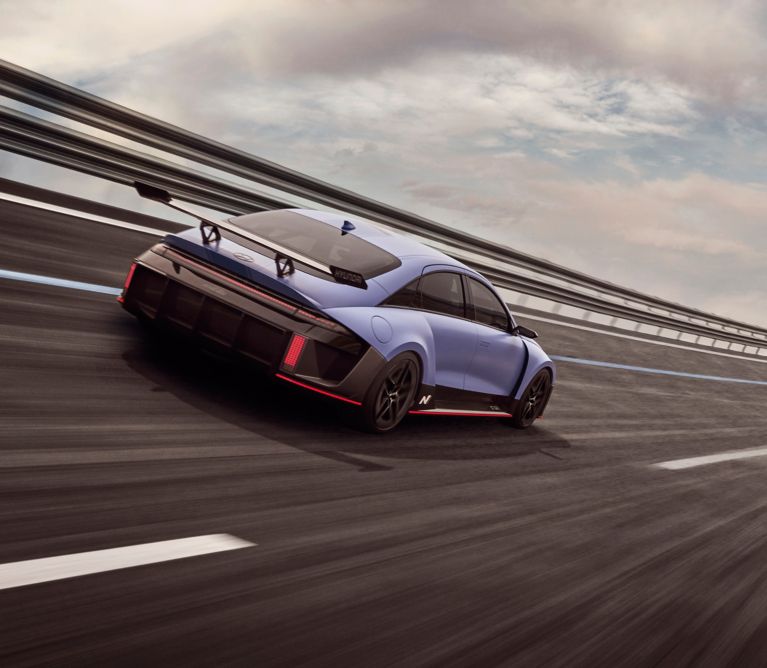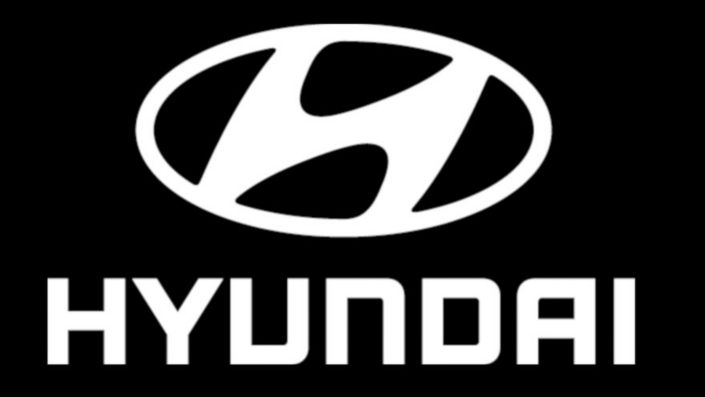- Hyundai Motor secured a 4.8-per cent market share in Europe in the first three quarters of 2022, up 0.6 percentage points compared to the same period in 2021
- The company sold 395,649 units in the EU, EFTA, and the UK in the first three quarters of 2022, showing 3.2-per cent growth over the same period last year
- Zero-emission vehicles make up 16 per cent of Hyundai’s total sales in Europe
Press material
-
Download
-
Images
In spite of the current challenges facing the entire automotive industry, Hyundai Motor Europe ended the third quarter of 2022 with strong sales figures, according to the latest data from the European Automobile Manufacturers Association (ACEA).
In total, Hyundai managed to sell 395,649 units across the EU, EFTA, and the UK from January to September 2022, showing 3.2-per cent growth over the same period last year, outpacing the market.
During the first three quarters of 2022, the company secured a market share of 4.8 per cent, up 0.6 percentage points compared to the same period in 2021. This makes Hyundai one of the few automakers that demonstrated consistent growth throughout 2022 so far.
Hyundai maintains its leadership on the mass manufacturer level. When looking exclusively at fully-electric vehicles, Hyundai sold 64,192 zero-emission vehicles in the same period, accounting for 16 per cent of total sales. Hyundai’s top-selling EV in Europe remains the KONA Electric – selling 30,981 units since January of this year, following its production launch at Hyundai’s HMMC production plant in the Czech Republic in 2020.

Expanding on electrification
The company is confident that its share of ZEV model sales will continue to grow in the next year. This year was the first full year that IONIQ 5 has been on the market. The fully-electric midsize SUV, which sold 28,014 units from Q1 to Q3 2022, has several prestigious accolades under its belt, including the 2022 World Car of the Year. Additionally, Hyundai recently premiered its Electrified Streamliner IONIQ 6, which will begin production for Europe at the end of the year.
Despite the great progress Hyundai has already made in electrified mobility, the company will further invest to drive innovation in the field. Hyundai N, the company’s high-performance sub-brand, recently unveiled two ‘rolling lab’ concepts – RN22e and N Vision 74 – that will act as the foundation for the continued development of future-focused zero-emissions technologies.
These figures highlight the progress Hyundai’s broad line-up has made in Europe, especially considering the challenges the entire industry is currently facing. We continued to extend our leadership in electrification when we premiered IONIQ 6. Not only will our Electrified Streamliner further diversify our sales mix, but it will also attract new audiences. Although Hyundai is not impervious to industry trends, we will strive to stay in the lead in the zero-emission transition.
Record market shares across European markets
On top of the 4.8-per cent market share in the EU, EFTA, and the UK, Hyundai also achieved significant growth in its key markets of Spain and the UK in the first nine months of 2022.
The Spanish market experienced a 14-per cent increase in sales when comparing the first three quarters of 2021 to those of 2022. Spain also secured a record market share of 7.5 per cent, up 1.4 percentage points on 2021.
Meanwhile, in the UK, Hyundai also hit a new record, reaching a market share of 5.3 per cent, up 1.3 percentage points on 2021. This amounted to an increase of 21 per cent compared to the equivalent January-September period last year.
When comparing the first nine months of 2021 to 2022, Germany shows a growth rate of four per cent. Currently, Germany has a market share of 4.1 per cent, exceeding the four-per cent mark five times in the last six months.
Hyundai’s market share in France across the first three quarters of 2022 increased to 3.2 per cent, up 0.5 percentage points on last year. Sales grew by one per cent compared to the first nine months of 2021.
Made in Europe, for Europe
Hyundai’s success in Europe can be attributed to its customer-centric development and production. Over 70 per cent of Hyundai cars are made in Europe, for Europe at the company’s HMMC and HAOS production plants in the Czech Republic and Turkey, respectively.
Having recently undergone a series of enhancements, HMMC is one of the most modern automotive manufacturing plants in Europe. Earlier this year, it became Hyundai’s first factory worldwide to completely convert its electricity use to renewable energy. HMMC produces 350,000 vehicles per year across almost every type of powertrain variant, including low-to-zero-emission models.
About ACEA
The European Automobile Manufacturers’ Association (ACEA) represents the 16 major Europe-based car, van, truck, and bus makers. ACEA works with a variety of institutional, non-governmental, research and civil society partners, as well as a number of industry associations with related interests.
Disclaimer: CO2 and emissions data
- Electricity consumption combined for the Hyundai KONA Electric 39.2 kWh in kWh/100 km: 14.3; CO2 emissions combined in g/km: 0 (WLTP)
- Electricity consumption combined for the Hyundai KONA Electric 64 kWh in kWh/100 km: 14.7; CO2 emissions combined in g/km: 0 (WLTP)
- Electricity consumption combined for the Hyundai IONIQ 5 58 kWh with 2WD in kWh/100 km: 16.7; CO2 emissions combined in g/km: 0 (WLTP)
- Electricity consumption combined for the Hyundai IONIQ 5 58 kWh with 4WD in kWh/100 km: 18.1; CO2 emissions combined in g/km: 0 (WLTP)
- Electricity consumption combined for the Hyundai IONIQ 5 77.4 kWh (19” alloy rims) with 2WD in kWh/100 km: 17.0; CO2 emissions combined in g/km: 0 (WLTP)
- Electricity consumption combined for the Hyundai IONIQ 5 77.4 kWh (20” alloy rims) with 2WD in kWh/100 km: 18.0; CO2 emissions combined in g/km: 0 (WLTP)
- Electricity consumption combined for the Hyundai IONIQ 5 77.4 kWh (19” alloy rims) with 4WD in kWh/100 km: 17.9; CO2 emissions combined in g/km: 0 (WLTP)
- Electricity consumption combined for the Hyundai IONIQ 5 77.4 kWh (20” alloy rims) with 4WD in kWh/100 km: 19.1; CO2 emissions combined in g/km: 0 (WLTP)
- Electricity consumption combined for the Hyundai IONIQ 6 53 kWh with 2WD in kWh/100 km: 13.9; CO2 emissions combined in g/km: 0 (WLTP)
- Electricity consumption combined for the Hyundai IONIQ 6 77.4 kWh (18” alloy rims) with 2WD in kWh/100 km: 14.3; CO2 emissions combined in g/km: 0 (WLTP)
- Electricity consumption combined for the Hyundai IONIQ 6 77.4 kWh (20” alloy rims) with 2WD in kWh/100 km: 16.0; CO2 emissions combined in g/km: 0 (WLTP)
- Electricity consumption combined for the Hyundai IONIQ 6 77.4 kWh (18” alloy rims) with 4WD in kWh/100 km: 15.1; CO2 emissions combined in g/km: 0 (WLTP)
- Electricity consumption combined for the Hyundai IONIQ 6 77.4 kWh (20” alloy rims) with 4WD in kWh/100 km: 16.9; CO2 emissions combined in g/km: 0 (WLTP)








